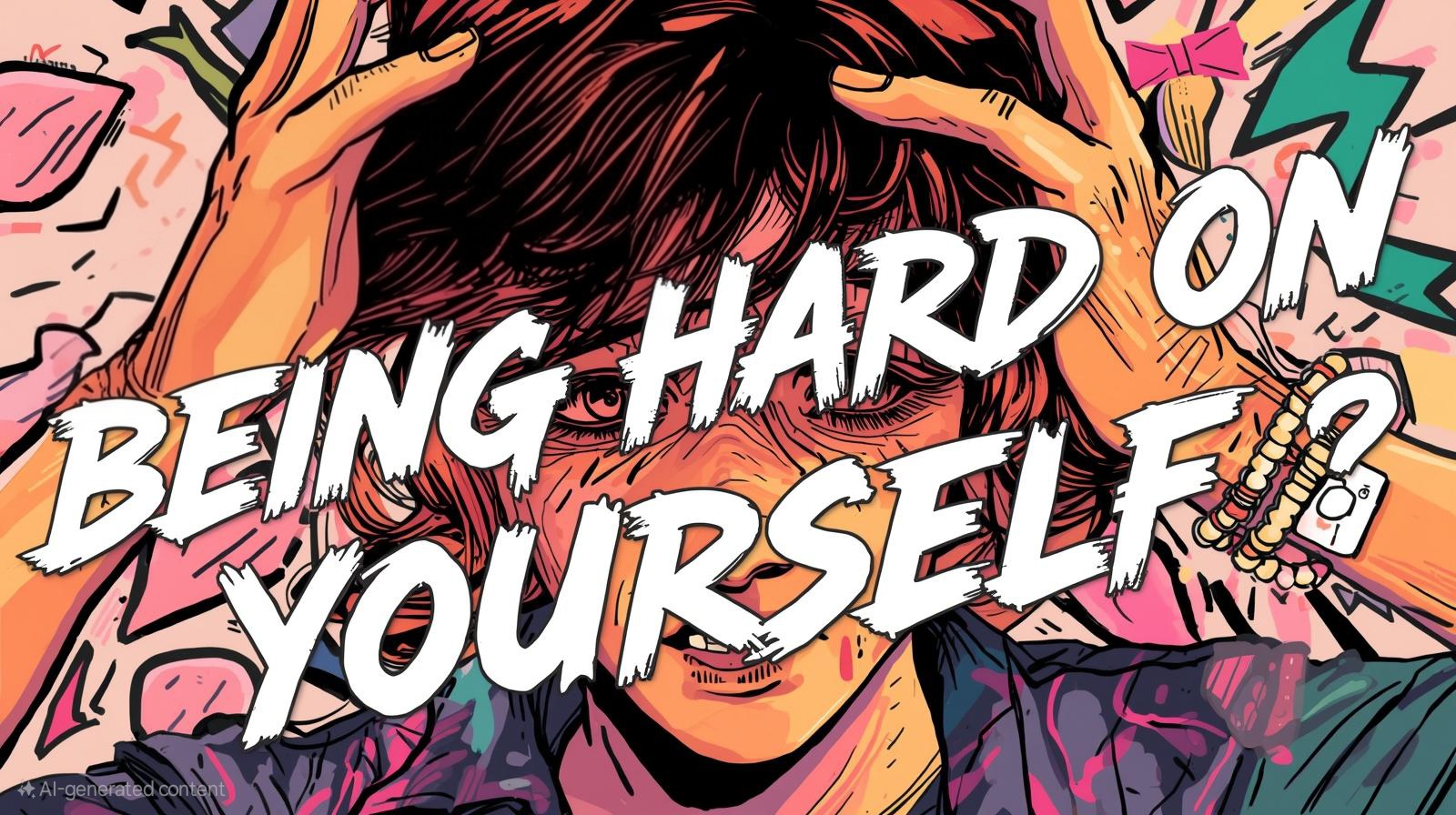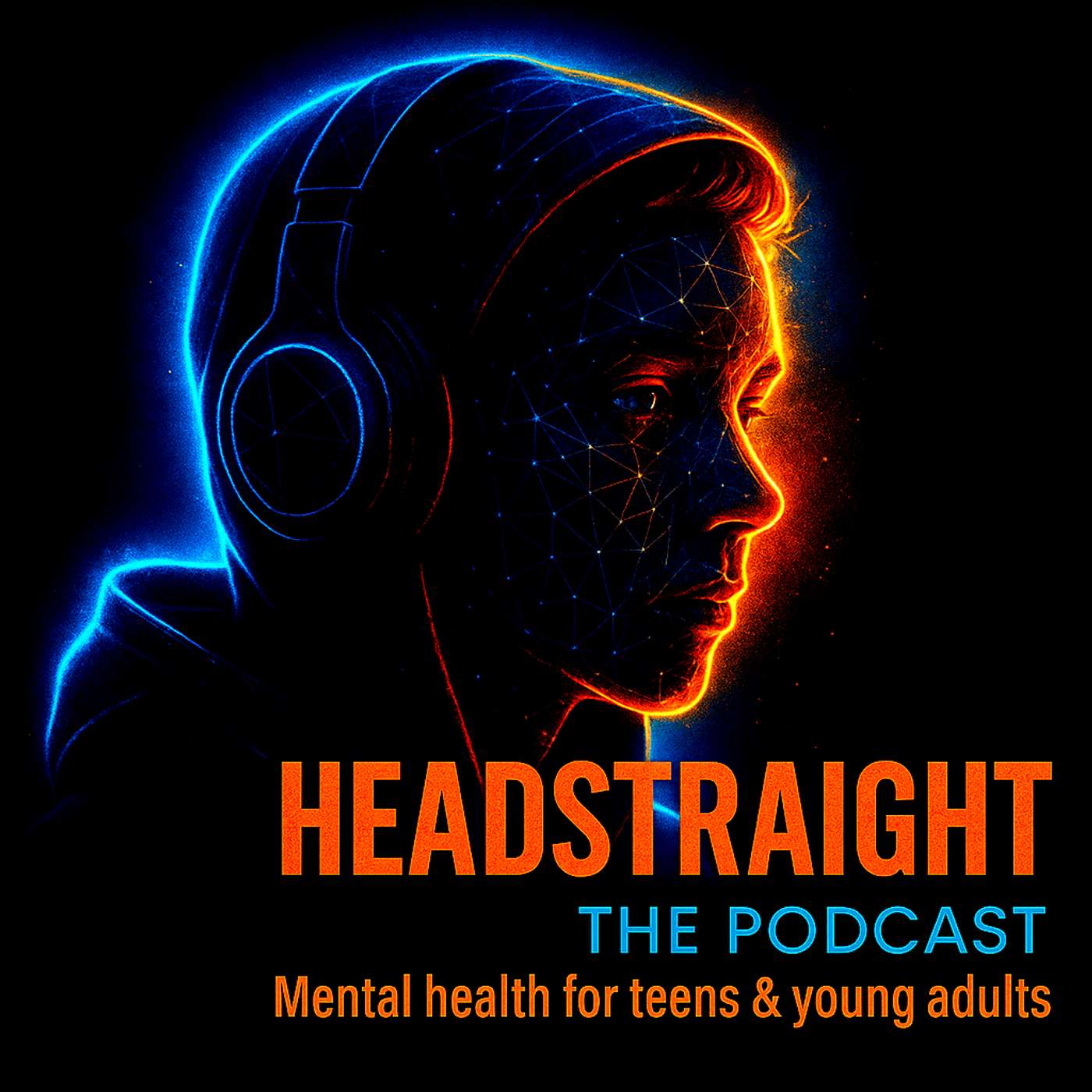How to Stop Being So Hard on Yourself: Tools That Actually Work

Let’s be honest. Most of us speak to ourselves in ways we’d never dream of speaking to anyone else.
Miss a deadline? Typical. You’re useless.
Struggle with something new? Why do you even bother?
Feel overwhelmed? Get a grip.
And here’s the thing — you’ve probably come to believe that voice is helpful. That if you’re hard enough on yourself, you’ll whip yourself into shape.
But that voice isn’t building you up. It’s breaking you down.
This isn’t about giving yourself a “love yourself no matter what” speech. It’s about developing the kind of voice in your head that backs you, challenges you with kindness, and keeps you steady when life tilts sideways. Because if you want to keep growing, you can’t be at war with yourself all the time.
Want to listen on your prefered app..?
Meet Your Inner Critic
The inner critic sounds like you, but it’s not really yours. It’s a mash-up of:
Old rules (don’t be too much).
Harsh echoes (you’ll never be good enough).
Cultural noise (only perfect people deserve respect).
It shows up when you’re vulnerable: trying something new, running on no energy, or facing things alone. And although it feels like “keeping yourself in check,” it’s really just holding you back.
The critic sticks because at one time it felt safe. Maybe you learned that:
Mistakes meant rejection.
Staying small meant survival.
Harshness equalled strength.
So you became your own critic — spot the flaws before anyone else could. Stay hard so you never got soft.
The problem? Research shows the opposite works. Harsh self-talk increases stress, procrastination, and shame. Self-compassion boosts motivation, resilience, and follow-through.
The critic might feel familiar. But it isn’t functional.
What an Inner Ally Sounds Like
Being your own ally isn’t about free passes or fake positivity. It’s about honesty without shame, kindness without delusion, firmness without cruelty.
It sounds like:
“That was tough, but I’m proud I tried.”
“You got it wrong, but that’s how learning works.”
“This doesn’t feel good — let’s adjust.”
It adapts. It knows when you need a push and when you need a pause. And it helps you bounce back without breaking yourself.
Tools That Actually Work
Here are four practical ways to shift from critic to ally:
1. The Voice Swap Technique
Write down what your critic says after a mistake. Example: “You’re such a failure.”
Now picture a friend saying that about themselves. What would you say back?
That reply is your new script. Read it back to yourself (out loud if you can). This creates distance from the critic and rewires the script.
2. Daily Check-Ins
Take ten seconds to ask: “What do I need right now?”
Link it to a daily habit (like brushing your teeth). Answer honestly: tired, overwhelmed, needing space? Then respond with one small action that honours that need.
You can’t be your own ally if you never listen to yourself.
3. The Inner Ally Journal
At the end of each day, jot down one moment where you showed up for yourself:
Took a break.
Asked for help.
Didn’t spiral.
Your brain naturally remembers failures. This trains it to track support instead. Over time, it builds a new story: I can rely on me.
4. Reframe Your Scripts
Swap the critic’s harshest lines for grounded ones:
“I’m falling behind” → “I’m moving at my pace — and that’s valid.”
“I always screw up” → “I’m still learning — and that’s allowed.”
“I’ll never change” → “I’m already in the process — progress takes time.”
Language shapes belief. Belief shapes action. Start with words.
When Kindness Feels Fake
For some people, self-compassion feels impossible — especially if you grew up on criticism or believe kindness equals weakness. If that’s you, start with neutrality.
“I don’t feel worth supporting, but I’ll still take care of myself.”
“I don’t love myself today, but I won’t abandon myself either.”
“This is hard, and I’m here for it.”
Kindness is a muscle. You build it through repetition, not instant belief.
This Week’s Challenge
Here’s how to practise being your own ally:
Voice Swap: Take one harsh moment. Rewrite the critic’s line as if you were talking to a friend.
Daily Check-Ins: Ask yourself what you need — and act on it.
Ally Journal: Write down one moment a day where you didn’t abandon yourself.
Reframe a Script: Take one critical line and rewrite it into a softer, truer version.
The Bottom Line.
If you want lasting growth, you need a voice in your head that doesn’t sabotage you. One that keeps you grounded, resilient, and moving forward.
You don’t have to flip a switch and suddenly love yourself. You just have to stop tearing yourself down and start building a habit of backing yourself.



